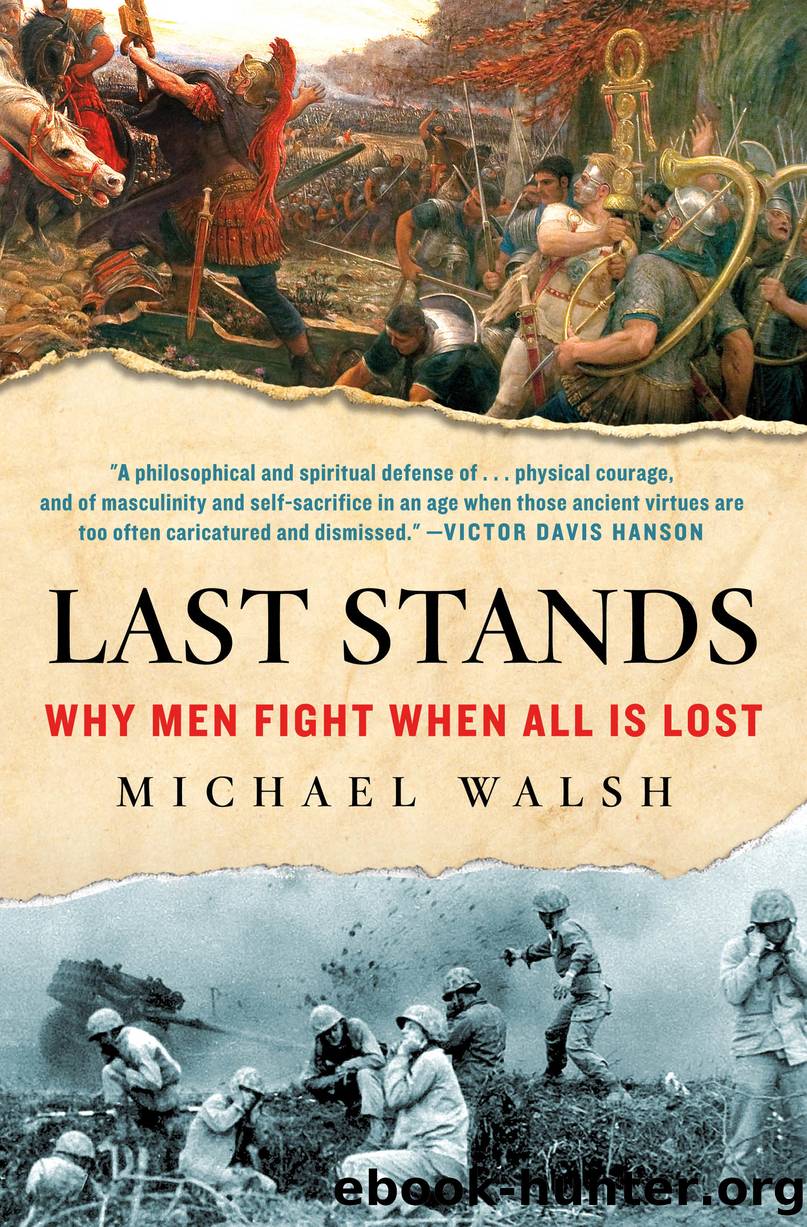Last Stands by Michael Walsh

Author:Michael Walsh
Language: eng
Format: epub
Publisher: St. Martin's Publishing Group
CHAPTER IX
âLICK âEM TOMORROW, THOUGHâ
GRANT AT SHILOH (1862)
Antietam was bloodier; Gettysburg was bigger and longer. But no battle of the American Civil War was as importantâas determinative of the preservation of the Unionâas the battle of Shiloh, fought on April 6â7, 1862, when the Rebellion was still young and few on either side suspected that it would go on as long as it did, and at what terrible cost. Had Ulysses S. Grant lost the battle, with his past as a drunk, an army washout, and a civilian failure still haunting him, and with his reputation on the line, the defeat would likely have been the end of him, as well as of his most trusted lieutenant, William Tecumseh Sherman. Grantâs rise would have been haltedâindeed, his career would have been over (as it very nearly was anyway), the critical victory at Vicksburg the following year never achieved, and the final confrontation between Grant and Robert E. Lee postponed indefinitely. Worse, a crushing Union defeat might have encouraged England to enter the war on the Southern side. The stakes were higher than anyone knew at the time.
Shiloh is not often thought of as a last stand, since the Union troops escaped the trap the enemy had set for them, killed one of the Southâs ablest generals, and drove off the Confederate forces. But on the evening of April 6, with the Federals having been caught by surprise early that morning, their position rolled back more than a mile, their backs against the Tennessee River as they awaited a final onslaught by fired-up rebels sensing blood and victory, it certainly became one. In fact, over the course of the two-day battle, there were multiple last standsânot only Grantâs but that of the Union troops at the notorious Hornetâs Nest, where divisions commanded by Brig Gens. Benjamin Prentiss and W. H. L. Wallace, after some of the fiercest fighting of the war, were surrounded and two thousand soldiers were taken captive; Wallace was killed in action.
But in hindsight, it was also something of an early last stand for the South itself: its failure to destroy Grantâs army, or even to dislodge him from his control of the waterways, led a year later to the fall of Vicksburg and with it any hope the Confederacy had of victory, or even survival. Rebel ferocity, heralded by the eerie, chilling ârebel yell,â which sent shivers down the spines of the Union armies, and élan vital1 would not, and could not, compensate in the end for the manpower and the productive factories of the North. But at this moment, at Shiloh, they almost did.
The Confederatesâ senior commander, Gen. Albert Sidney Johnston, understood that the Southâs only hope to defeat the Federals in the War Between the States was to knock them out of the war early and force Lincoln to sue for peace.2 A Union loss would have meant not simply a transient defeat but the annihilation of the Army of the Tennessee3 and with it, very likely, the permanent sundering of the United States itself.
Download
This site does not store any files on its server. We only index and link to content provided by other sites. Please contact the content providers to delete copyright contents if any and email us, we'll remove relevant links or contents immediately.
Harry Potter and the Prisoner of Azkaban by J K Rowling(3116)
The Sentinel (Jack Reacher) by Lee Child & Andrew Child(3003)
Harry Potter and the Prisoner of Azkaban by Rowling J K(2669)
The Tales of Beedle the Bard by J.k.rowling (eng)(2365)
Marauder (The Oregon Files) by Clive Cussler & Boyd Morrison(1643)
Better Off Dead by Lee Child & Andrew Child(1569)
The Other Emily by Dean Koontz(1452)
The Girl and the Mountain by Mark Lawrence(1307)
Migrations by Charlotte McConaghy(1276)
Gild (The Plated Prisoner Series Book 1) by Raven Kennedy(1269)
The Captive by Fiona King Foster(1237)
The OP MC: God of Winning by Logan Jacobs(1214)
Marauder by Clive Cussler & Boyd Morrison(1170)
Hidden in Plain Sight by Archer Jeffrey(1158)
Near the Bone by Christina Henry(1155)
Fable: A Novel by Adrienne Young(1142)
Ruthless Empire (Royal Elite Book 6) by Rina Kent(1124)
Harry Potter and the Sorcerer's Stone: Illustrated [Kindle in Motion] (Illustrated Harry Potter) by J.K. Rowling(1062)
Ancient Dreams Omnibus Edition by Benjamin Medrano(1060)
